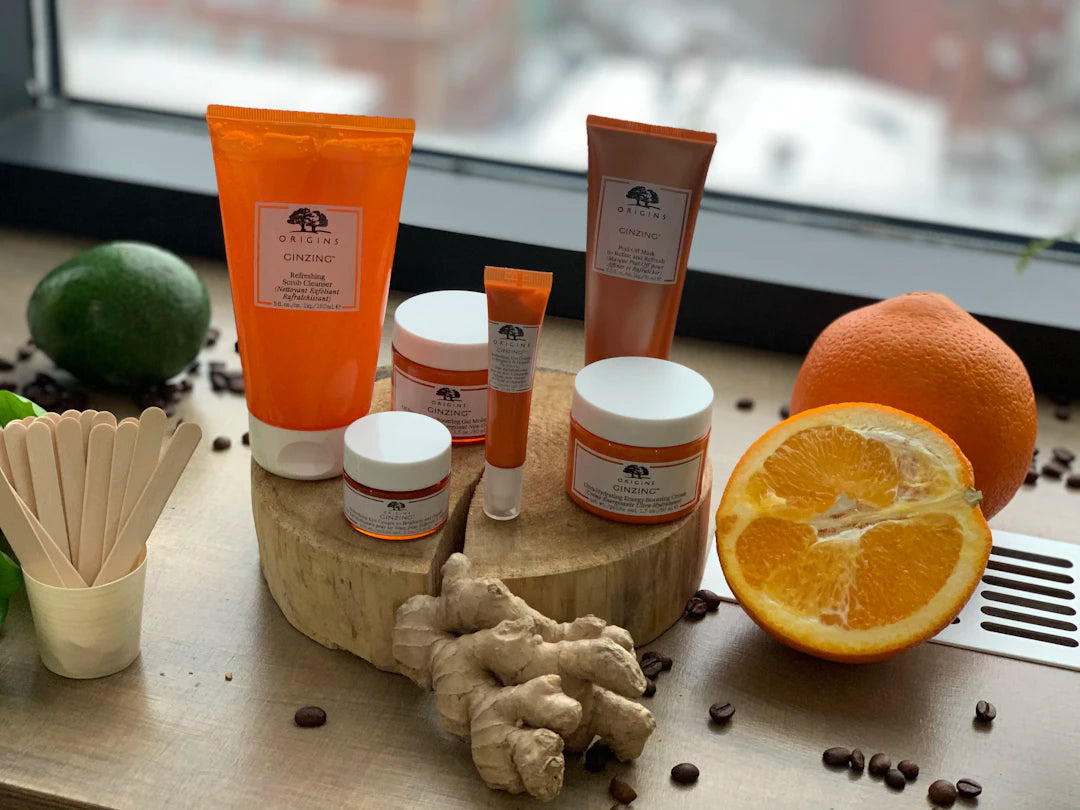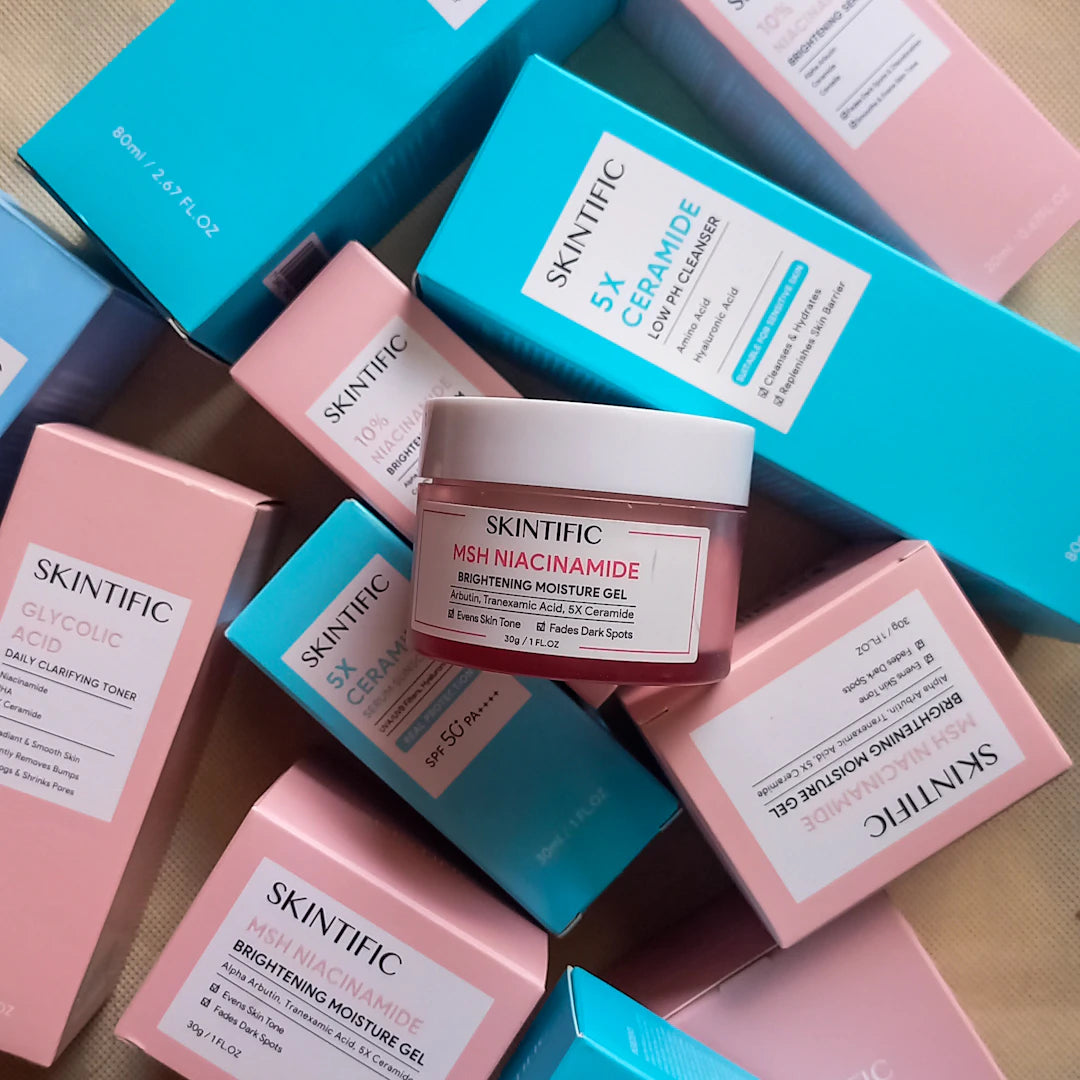Mastering Skin Care: Identify and Avoid Irritants

Frequently Asked Questions
1. What are some common skin irritants I should be aware of?
2. How can I identify my skin type?
3. What is the best way to patch test a new skin care product?
4. What strategies can I use to soothe irritated skin?
5. How can I build an effective skin care routine to avoid irritants?
Skin is our body's largest organ, and taking care of it can feel like a challenging task, especially when faced with irritants that can cause redness, breakouts, or other uncomfortable reactions. Understanding how to identify and avoid skin irritants is essential for maintaining a clear, vibrant complexion.
Understanding Skin Irritants
Skin irritants can be found almost everywhere—from the products we use daily to the environment around us. They can trigger allergic reactions or worsen existing skin conditions. Recognizing these irritants is the first step toward achieving healthier, calm skin. Below are some common types of skin irritants you should be aware of:
1. Harsh Chemicals
Many skin care products contain a variety of chemicals that can overstimulate or irritate the skin. Ingredients such as parabens, sulfates, and synthetic fragrances are known culprits. Always check the ingredient list to avoid these potentially harmful substances.
2. Fragrances and Dyes
Even if a product smells good or has vibrant colors, it doesn’t mean it’s good for your skin. Fragrances and artificial dyes can cause skin reactions in sensitive individuals. Opt for fragrance-free and dye-free products whenever possible.
3. Alcohol-Based Products
Alcohol can strip the skin of its natural oils, leading to dryness and irritation. Be cautious when using toners and astringents containing alcohol, as they can compromise your skin’s protective barrier.
Identifying Your Skin Type
To effectively choose skin care products and avoid irritants, it's crucial to understand your skin type. Each skin type has different needs and reactions. Here’s a brief overview of common skin types:
- Normal: Balanced moisture, minimal sensitivity.
- Oily: Excess oil production, prone to acne.
- Dry: Lacks moisture, can be flaky or tight.
- Combination: A mix of oily and dry areas.
- Sensitive: Easily irritated, may react to certain products.
How to Patch Test Skin Care Products
The best practice for avoiding skin irritants is to patch test any new product before full application. Here’s a simple way to do it:
- Select a small area of skin, such as the inner forearm.
- Apply a small amount of the product and leave it on for 24-48 hours.
- Monitor the area for any signs of redness, itching, or swelling.
- If there is no reaction, it’s generally safe to use the product on your face or body.
Environmental Factors to Consider
Not all skin irritants come from products—environmental factors can also play a significant role in skin health. Here are some common environmental irritants to watch out for:
1. Pollution
Environmental pollution can accelerate skin aging and contribute to inflammation. Using an excellent hyaluronic acid serum can help keep the skin hydrated, providing a protective barrier against pollutants.
2. Climate Changes
Extreme temperatures and humidity levels can stress your skin. For instance, excessive sun exposure can lead to sunburn and skin irritation. Investing in broad-spectrum sunscreen is essential for protecting your skin while enjoying the outdoors.
3. Irritating Fabrics
Certain fabrics like wool or synthetic materials can cause friction and irritation. Opt for breathable, soft materials, especially for clothing and bed linens, to maintain comfort and minimize skin reactions.
Common Household Irritants
Your home can be a source of skin irritants, too. Here are some common household items that might be irritating your skin:
1. Cleaning Products
Many household cleaners contain strong chemicals that can lead to skin irritation. Always use gloves when cleaning and consider eco-friendly alternatives that are less likely to cause reactions.
2. Personal Care Items
Everyday items such as soaps, shampoos, and lotions can also be irritating. Look for gentle, hypoallergenic options that are less likely to trigger adverse reactions.
3. Laundry Detergents
The detergent used for washing clothes can irritate sensitive skin, particularly if it contains fragrances. Choose a hypoallergenic detergent to reduce the risk of irritation.
Simple Strategies for Soothing Irritated Skin
Even with precautions, irritation can still happen. If you find your skin irritated, here are some effective strategies to soothe it:
- Cool Compress: Applying a cool compress can help reduce inflammation and calm irritation.
- Moisturize: Use a gentle, fragrance-free moisturizer to soothe and hydrate your skin. Pay special attention to your skin barrier.
- Avoid Scrubs: Skip physical scrubs and opt for gentle exfoliation methods to avoid further aggravation.
- Stay Hydrated: Drinking water can help maintain skin hydration from the inside out.
The Role of Antiaging Ingredients
As we discuss skin care, it’s hard to overlook the role of antiaging ingredients. Many people are seeking ways to not only avoid irritants but also improve their skin’s overall appearance. While identifying and avoiding irritants is crucial for maintaining skin health, incorporating beneficial ingredients can help enhance your skin’s vitality.
For example, hyaluronic acid serum is known for its hydrating properties. By keeping your skin well-hydrated, it may help to shield it from irritants and environmental stressors. Regular use of such products can promote a youthful complexion while maintaining skin comfort.
Building Your Ultimate Skin Care Routine
Your skin care routine plays a significant role in preventing irritation and maintaining a healthy complexion. Follow these simple guidelines to build an effective routine:
1. Gentle Cleansing
Start with a mild, sulfate-free cleanser that suits your skin type. Avoid harsh scrubs that can irritate your skin.
2. hydration
Incorporate a hyaluronic acid serum into your daily routine to boost hydration and provide a protective barrier for your skin. This step is essential for anyone looking to counteract potential irritants.
3. Sun Protection
Daily sun protection is vital to prevent UV damage that can lead to irritation and premature aging. Use a broad-spectrum sunscreen suitable for your skin type, even on cloudy days.
4. Moisturizing
Finish off with a gentle moisturizer that locks in hydration and strengthens your skin's barrier. Make sure to choose a product free from unnecessary additives.
Stay Ahead of the Game
Identifying and avoiding skin irritants is an ongoing process. By paying attention to what your skin is telling you and adapting your routine accordingly, you can maintain a healthy, glowing complexion. Remember, every individual's skin is unique, and what may irritate one person may be perfectly fine for another. By becoming a knowledgeable consumer and prioritizing skin health, you can create a nurturing environment for your skin to thrive!
With these insights, you're better equipped to protect your skin from irritants while striving for that radiant glow. Your journey to beautiful, happy skin starts today. Happy pampering!
Linked Product
Hydrate & Protect Bundle
The Hydrate & Protect Bundle combines a hydrating hyaluronic acid serum with a broad-spectrum sunscreen, making it an effective option for summer skin care. The serum helps maintain skin moisture, while the sunscreen provides essential protection against harmful UV rays. Together, they support healthier skin and can help minimize the risk of irritation from environmental factors.
View Product

